
Open Revolt is very happy to present a conversation between the Eurasian Youth Union’s Dari Dougina and our own James Porrazzo.
Dari, the daugher of Alexander Dugin, in addition to her work in the Eurasian Youth Union is also the director of the project Alternative Europe for the Global Revolutionary Alliance.
Dari you are a second generation Eurasianist, daughter of our most important thinker and leader Alexander Dugin. Do you care to share with us your thoughts on being a young militant this deep into the Kali Yuga?
We live in the era of the end – that’s the end of culture, philosophy, politics, ideology. That’s the time without real movement; the Fukuyama’s gloomy prophecy of the ”end of history” turns to be a kind of reality. That’s the essence of Modernity, of Kali Yuga. We are living in the momentum of Finis Mundi. The arrival of Antichrist is in the agenda. This deep and exhausting night is the reign of quantity, masked by the tempting concepts such as Rhizome of Gilles Deleuze: the pieces of the modern Subject changes into the ”chair-woman” from the “Tokyo Gore Police” (post-modern Japanese film) – the individual of the modern paradigm turns into the pieces of dividuum. ”God is dead” and his place is occupied by the fragments of individual. But if we make a political analysis we will find out that this new state of the world is the project of liberalism. The extravagant ideas of Foucault seemingly revolutionary in their pathos after more scruple analyze show their conformist and (secretly) liberal bottom, that goes against the traditional hierarchy of values, establishing pervert “new order” where the summit is occupied by the self-adoring individual, atomistic decay. That’s hard to fight against the modernity, but sure – it’s unbearable to live in it – to agree with this state of the things – where all the systems are changed and the traditional values became a parody – being purged and mocked in all spheres of controls of modern paradigms. That’s the reign of the cultural hegemony. And this state of the world bothers us. We fight against it – for the divine order – for the ideal hierarchy. The cast-system in modern world is completely forgotten and transformed into a parody. But it has a fundamental point. In Plato’s republic – there is very interesting and important thought: casts and vertical hierarchy in politics are nothing but the reflection of the world of ideas and higher good. This model in politics manifests the basic metaphysical principles of the normal (spiritual) world. Destroying the primordial cast system it in the society – we negate the dignity of the divine being and his Order. Resigning from the casts system and traditional order, brilliantly described by Dumezil, we damage the hierarchy of our soul. Our soul is nothing but the system of casts with a wide harmony of justice which unites 3 parts of the soul (the philosophical – the intellect, the guardian – the will, and the merchants – the lust). Fighting for the tradition we are fighting for our deep nature as the human creature. Man is not something granted – it s the aim. And we are fighting for the truth of human nature (to be human is to strive to the superhumanity). That can be called a holly war.
What does the Fourth Political Theory mean to you?
That’s the light of the truth, of something rarely authentic in the post-modern times. That’s the right accent on the degrees of existence – the natural chords of the world laws. That’s something which grows up on the ruins of the human experience. There is no success without the first attempts – all of the past ideologies contained in them something what caused their failure.
The Fourth Political Theory – that’s the project of the best sides of divine order that can be manifested in our world – from liberalism we take the idea of the democracy (but not in it’s modern meaning) and liberty in the Evolian sense; from communism we accept the idea of solidarity, anti-capitalism, anti-individualism and the idea of collectivism; from fascism we take the concept of vertical hierarchy and the will to power – the heroic codex of the Indo-European warrior.
All these past ideologies suffered from grave shortcomings – democracy with the addition of liberalism became tyranny (the worst state-regime by Plato), communism defended the technocentric world with no traditions and origins, fascism followed the wrong geopolitical orientation, its racism was Western, Modern, liberal and anti-traditional.
The Fourth Political Theory is the global transgression of this defects – the final design of the future (open) history. It’s the only way to defend the truth.
For us – truth is the multipolar world, the blossoming variety of different cultures and traditions.
We are against racism, against the cultural and strategic racism of the USA’s Western modern civilization, which is perfectly described by professor John M. Hobson in ”The Europocentric conception of world politics”. The structural (open or subliminal) racism destroys charming complexity of the human societies – primitive or complex.
Do you find any special challenges as both a young woman and a activist in this age?
This spiritual war against (post)Modern world gives me the force to live.
I know, that I’m fighting against the hegemony of evil for the truth of the eternal Tradition. It is obscured now, not completely lost. Without it nothing could exist.
I think that any gender and age has its forms to access the Tradition and its ways to challenge Modernity.
My existential practice is to abdicate most values of the globalist youth. I think we need to be different from this thrash. I don’t believe in anything modern. Modernity is always wrong.
I consider love to be a form of initiation and spiritual realization. And the family should be the union of spiritually similar persons.
Beyond your father, obviously, who else would you suggest young militants wishing to learn our ideas study?
I recommend to make acquaintance with the books of Rene Guenon, Julius Evola, Jean Parvulesco, Henri Corbin, Claudio Mutti, Sheikh Imran Nazar Hosein (traditionalism); Plato, Proclus, Schelling, Nietzsche, Martin Heidegger, E. Cioran (philosophy); Carl Schmitt, Alain de Benoist, Alain Soral (politics); John M. Hobson, Fabio Petito (IR); Gilbert Durand, G. Dumezil (sociology). The base kit of reading for our intellectual and political revolution.
You’ve now spent some time living in Western Europe. How would you compare the state of the West to the East, after first hand experience?
In fact, before my arrival to Europe I thought that this civilization is absolutely dead and no revolt could be possible there. I was comparing the modern liberal Europe to bog, with no possibility to protest against the hegemony of liberalism.
Reading the foreign European press, seeing the articles with titles as ”Putin – the satan of Russia” / ” the luxury life of poor president Putin” / ” pussy riot – the great martyrs of the rotten Russia” – this idea was almost confirmed. But after a while I’ve found some political anti-globalist groups and movements of France – like Egalite&Reconcilation, Engarda, Fils de France etc – and everything changed.
The swamps of Europe have transformed into something else – with the hidden possibility of revolt. I’ve found the ”other Europe”, the ”alternative” hidden empire, the secret geopolitical pole.
The real secret Europe should be awakened to fight and destroy its liberal double.
Now I’m absolutely sure, that there are 2 Europes; absolutely different – liberal decadent Atlanticist Europe and alternative Europe ( anti-globalist, anti-liberal, Eurasia-orientated).
Guenon wrote in the ”Crisis of the modern world” that we must divide the state of being anti-modern and anti-Western. To be against the modernity – is to help Occident in its fight against Modernity, which is constructed on liberal codes. Europe has it’s own fundamental culture (I recommend the book of Alain de Benoist – “The traditions of Europe”). So I found this alternative, secret, powerful, Traditionalist other Europe and I put my hopes on its secret guardians.
We’ve organized with Egalite&Reconcilation a conference in Bordeaux in October with Alexander Dugin and Christian Bouchet in a huge hall but there was no place for all the volunteers who wanted to see this conference.
It shows that something begins to move…
Concerning my views on Russia – I’ve remarked that the bigger part of European people don’t trust the media information – and the interest to Russia grows up – it’s seen in the mode of learning Russian, of watching soviet films and many European people understand that the media of Europe are totally influenced by the hegemonic Leviathan, liberal globalist machine of lies.
So the seeds of protest are in the soil, with time they’ll grow up, destroying the ”society of spectacle”.
Your whole family is a great inspiration to us here at Open Revolt and New Resistance. Do you have a message for your friends and comrades in North America?
I really can’t help admiring your intensive revolutionary work! The way you are working – in the media – is the way of killing the enemy ”with it’s own poison”, using the network warfare strategy. Evola spoke about that in his excellent book ”Ride the tiger”.
Uomo differenzziato is someone who stays in the center of modern civilization but don’t accept it in his inner empire of his heroic soul. He can use the means and arms of modernity to cause a mortal wound to the reign of quantity and its golems.
I can understand that the situation in USA now is difficult to stand. It’s the center of hell, but Holderlin wrote that the hero must throw himself into abyss, into the heart of the night and thus conquer the darkness.
Any closing thoughts you’d like to share?
Studying in the faculthttp://openrevolt.info/2013/01/23/we-live-in-the-era-of-the-end-a-interview-with-dari-dougina/y of philosophy and working on Plato and neo-platonism, I can remark, that politics is nothing but the manifestation of the basic metaphysical principles which lays in the fundament of being.
Making political war for the Fourth Political Theory we are also establishing the metaphysical order – manifesting it in the material world.
Our struggle is not only for the ideal human state – it is also the holy war for reestablishing the right ontology.
http://openrevolt.info/2013/01/23/we-live-in-the-era-of-the-end-a-interview-with-dari-dougina/




 del.icio.us
del.icio.us
 Digg
Digg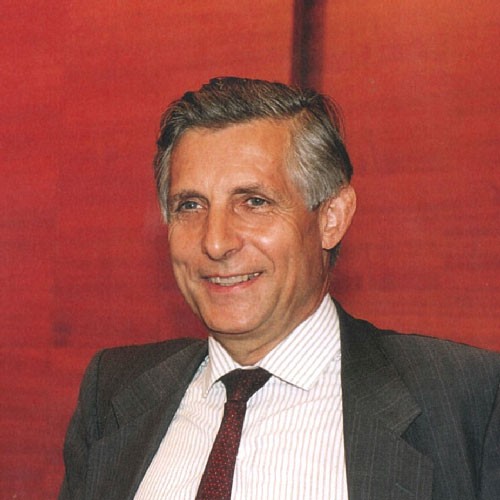

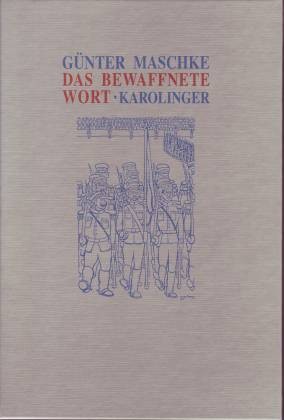 SEZESSION:
SEZESSION:  SEZESSION:
SEZESSION: 

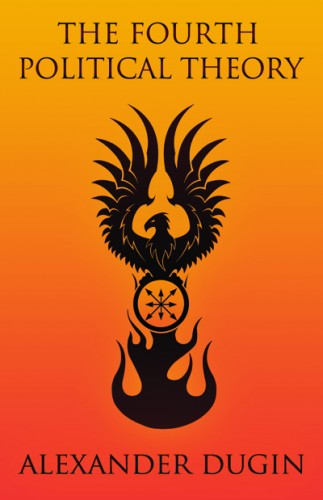 Every established intellectual, politician or media company moves inside this totalitarian liberal system. For example you will not find any established political party in the German parliament that doesn´t claim to be “also liberal”. Our universities “research” about “identities”, “gender”, and “culture” to change this or that. The new liberal types of human being don´t have a heritage, homeland or cultural identity. Even the gender can be changed. We could consider that as a type of slapstick comedy if it wouldn´t be so serious, because it means a type of destruction of basics and values, which might be hard to repair.
Every established intellectual, politician or media company moves inside this totalitarian liberal system. For example you will not find any established political party in the German parliament that doesn´t claim to be “also liberal”. Our universities “research” about “identities”, “gender”, and “culture” to change this or that. The new liberal types of human being don´t have a heritage, homeland or cultural identity. Even the gender can be changed. We could consider that as a type of slapstick comedy if it wouldn´t be so serious, because it means a type of destruction of basics and values, which might be hard to repair.

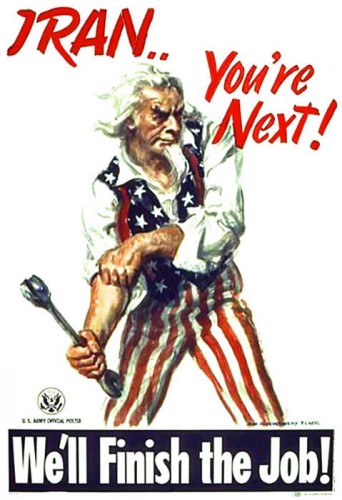
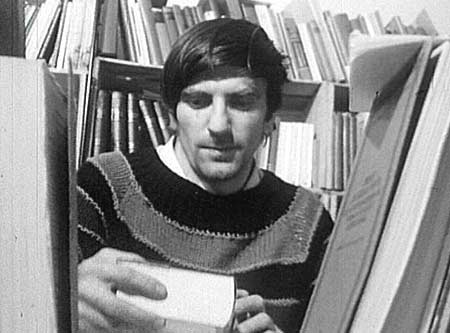


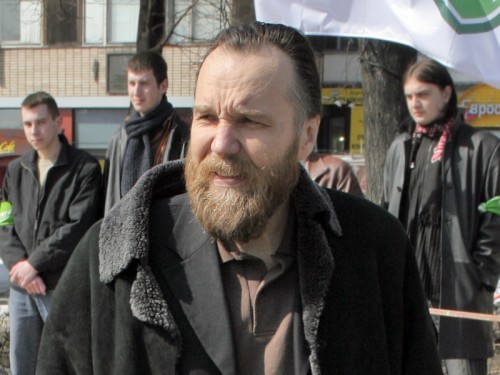



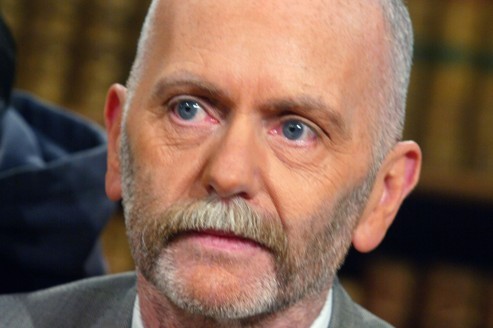







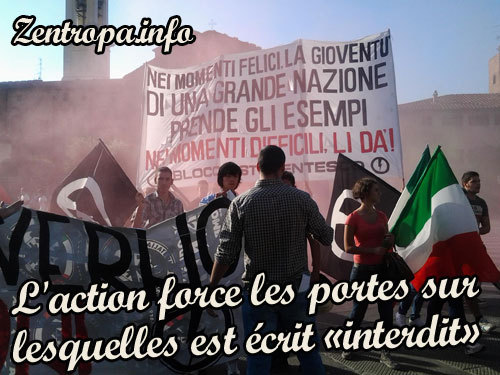
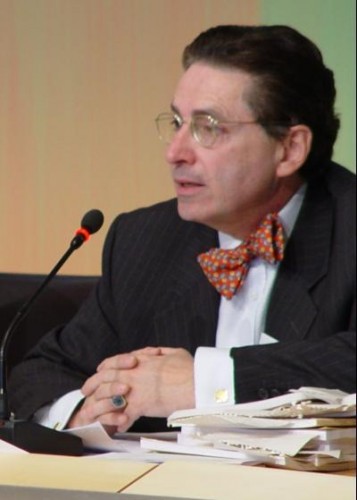 thk. Le 23 mars, Alfred de Zayas a été désigné, par le Conseil des droits de l’homme, comme expert indépendant auprès de l’ONU pour la promotion d’un ordre international démocratique et équitable. Il est le premier à avoir le droit d’assumer ce mandat créé en septembre 2011, pour pouvoir agir dans le domaine de la démocratisation de l’ONU et au sein des Etats nationaux unis en elle. Il est entré en fonction le 1er mai 2012. Déjà lors de la session d’automne 2012 du Conseil des droits de l’homme, Alfred de Zayas a présenté son premier rapport et a obtenu une large approbation. L’expert indépendant, qui présente une longue carrière à l’ONU, n’était pas venu tout à fait de manière inattendue à cette fonction, comme il le dit lui-même, car il s’est occupé depuis très longtemps de la question de l’organisation d’une vraie démocratie, c’est-à-dire de la démocratie directe, comme elle existe en Suisse. Avec son mandat, Alfred de Zayas souhaite s’engager pour la paix et l’égalité des peuples. «Horizons et débats» a interviewé Alfred de Zayas à l’ONU à Genève.
thk. Le 23 mars, Alfred de Zayas a été désigné, par le Conseil des droits de l’homme, comme expert indépendant auprès de l’ONU pour la promotion d’un ordre international démocratique et équitable. Il est le premier à avoir le droit d’assumer ce mandat créé en septembre 2011, pour pouvoir agir dans le domaine de la démocratisation de l’ONU et au sein des Etats nationaux unis en elle. Il est entré en fonction le 1er mai 2012. Déjà lors de la session d’automne 2012 du Conseil des droits de l’homme, Alfred de Zayas a présenté son premier rapport et a obtenu une large approbation. L’expert indépendant, qui présente une longue carrière à l’ONU, n’était pas venu tout à fait de manière inattendue à cette fonction, comme il le dit lui-même, car il s’est occupé depuis très longtemps de la question de l’organisation d’une vraie démocratie, c’est-à-dire de la démocratie directe, comme elle existe en Suisse. Avec son mandat, Alfred de Zayas souhaite s’engager pour la paix et l’égalité des peuples. «Horizons et débats» a interviewé Alfred de Zayas à l’ONU à Genève. 
Ex: http://mediabenews.wordpress.com/
Entretien avec Ahmed Bensaada